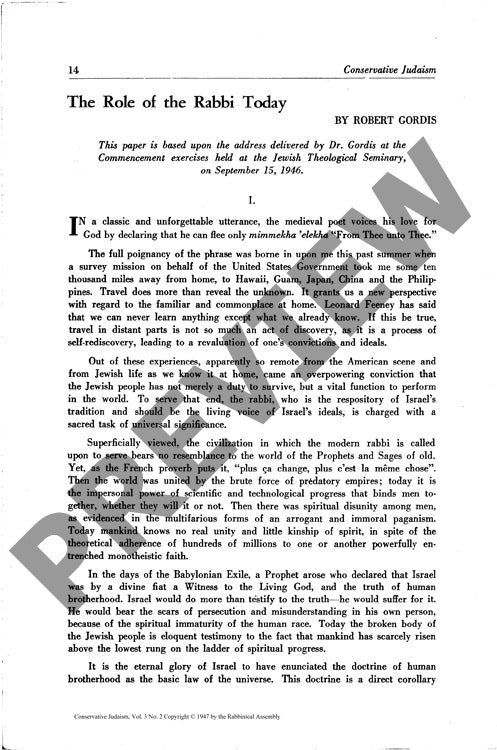The Role of the Rabbi Today
Couldn't load pickup availability
Jewish communities worldwide share remarkably similar challenges and spiritual needs despite their vast geographical dispersion, as revealed through observations of post-World War II Jewish life across the Pacific. From Hawaii to the Philippines, rabbis serve not only as spiritual leaders but as essential guardians of cultural continuity in an era of unprecedented change. Through ethnographic observation and theological analysis of Jewish communities in Hawaii, Guam, Japan, China, and the Philippines, combined with examination of classical Jewish texts, three fundamental pillars emerge as critical to Jewish survival: Torah (spiritual learning), Eretz Yisrael (connection to the homeland), and Olam Haba (messianic vision). While American Jewish communities enjoy material prosperity, they face growing spiritual poverty that demands innovative rabbinic leadership. The modern rabbi's effectiveness depends not on institutional authority but on continuous Torah study and creative interpretation of tradition. This analysis of Jewish leadership in the critical post-Holocaust period demonstrates how rabbis must simultaneously preserve particular Jewish traditions while advancing universal human brotherhood through Jewish teachings and values. The findings draw from a 1946 government survey mission across the Pacific region, offering insights into both the universal challenges facing diaspora Jewry and the evolving nature of rabbinic leadership.

More Information
-
Physical Description
-
Publication Information
Published 1947
ISBN
-
Publication Credits
Robert Gordis

